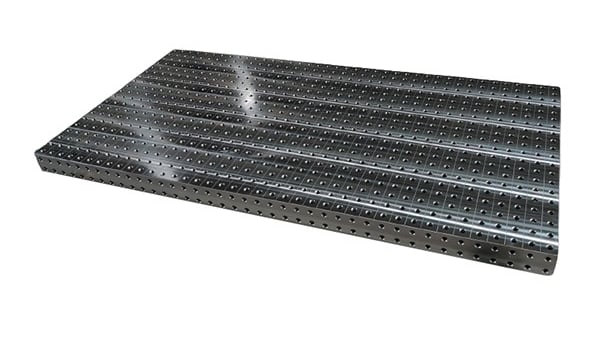Industry Applications of Welding Tables: The Multifaceted Value from Construction to Manufacturing
12/21/20242 min read


Understanding Welding Tables and Their Importance
Welding tables are essential pieces of equipment in various industries, serving as a stable surface where metal pieces can be assembled and welded together. These tables are crafted to withstand high temperatures and heavy weights, making them integral to various applications from construction to manufacturing. In this blog post, we’ll explore the multifaceted value of welding tables and their specific applications across different sectors.
Construction Industry: A Solid Foundation
In the construction industry, welding tables play a crucial role. They provide a flat and stable workspace during the assembly of metal structures such as beams, girders, and frames. These tables often come equipped with clamps and fixtures, allowing for precise positioning of materials.
Moreover, the use of welding tables enhances the efficiency of the welding process. Workers can easily access tools and materials, minimizing downtime. In high-demand construction projects, a welding table can significantly boost productivity, leading to faster completion times and reduced labor costs.
Manufacturing Sector: Streamlining Production
The manufacturing industry is another sector where welding tables shine. In this environment, welding tables are designed to support the production of various goods, from automobiles to heavy machinery. Their capacity to endure continuous use and support heavy weights makes them ideal for assembly lines. The ability to perform multiple welding tasks on a single table drastically reduces the need for multiple setups, increasing overall productivity.
Additionally, modern manufacturing techniques often incorporate automated welding, and welding tables can be integrated into these systems. This allows for greater consistency in weld quality and further streamlines production processes.
Versatility Beyond Construction and Manufacturing
While construction and manufacturing are the primary applications, the versatility of welding tables extends to other industries too. For instance, in the artistic domain, sculptors and metal artists utilize these tables to create intricate designs. The stability provided by a welding table allows for detailed work that requires precision.
Furthermore, educational institutions and training centers frequently employ welding tables in teaching environments. Students can practice welding techniques safely and effectively, preparing them for careers in various trades once they graduate.
In conclusion, welding tables are not just a luxury for professionals but rather a necessity that enhances performance and efficiency across many industries. Their applications in construction, manufacturing, and beyond exemplify their multifaceted value. Investing in a quality welding table can lead to improved workflow, better final products, and increased satisfaction for both workers and clients alike.
Quality
Leading manufacturer of welding solutions since 2014.
Contact
Support
sales@xingtongweldingtable.com
+86-137-22775712
© 2024. All rights reserved.
